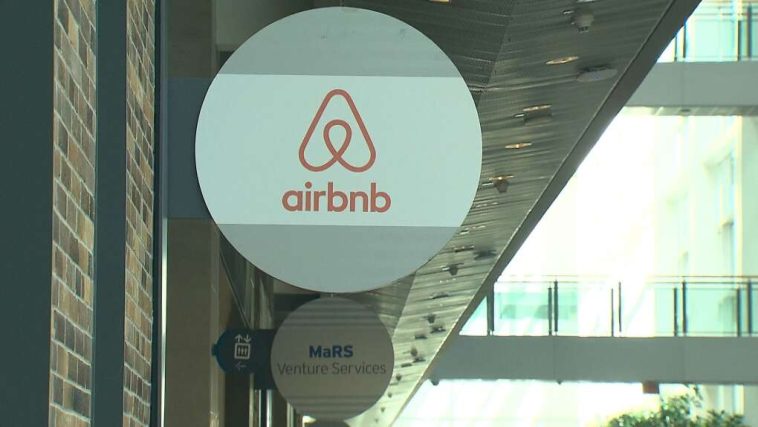Introduction.
Launching an Airbnb business can be a profitable venture, but one of the biggest hurdles in getting started is finding the right funding.
But funding an Airbnb isn’t always straightforward, especially if traditional banks are hesitant about short-term rental businesses.
Let’s walk through the most practical ways to fund an Airbnb business, from personal loans to more creative financing options. I’ll share the pros and cons of each method, go over real-world examples, and answer some common questions.
How Do I Get Funding For My Airbnb Business?
1. Personal Savings.
Using personal savings is often the most straightforward way to get started. For those who have some savings tucked away, this option can be appealing because it doesn’t involve taking on debt or giving up control to investors.
Plus, when you fund with personal savings, you aren’t tied to any financial institution’s approval or repayment terms.
Pros:
- No monthly payments or interest to worry about.
- Total control over the funds.
- Fast and simple access to capital.
Cons:
- Drains personal savings, leaving less for emergencies.
- Limits you to whatever amount you already have saved.
2. Traditional Bank Loans.
Banks typically offer personal loans and mortgages, which can help finance property purchases or upgrades.
However, it’s good to keep in mind that some banks may be wary of financing properties intended solely for short-term rentals, as they’re seen as higher-risk investments.
Pros:
- Larger loan amounts are available compared to personal savings.
- Lower interest rates if you have good credit.
- Fixed repayment terms for predictable payments.
Cons:
- Approval can be difficult, especially if the loan is explicitly for an Airbnb.
- Interest adds up over time.
- Strict terms and conditions, which could limit your flexibility.
3. Home Equity Line of Credit (HELOC).
For homeowners, a HELOC can be a valuable funding option. This type of loan allows you to borrow against the equity you’ve built in your home, typically at lower interest rates than a traditional loan.
HELOCs are often popular for property upgrades, renovations, or even buying additional properties.
Pros:
- Lower interest rates compared to personal loans.
- Flexibility to draw funds as needed.
- Could offer a higher borrowing limit than credit cards.
Cons:
- Your home is used as collateral, so there’s a risk of foreclosure if you can’t repay.
- HELOCs can be complicated to manage if not used wisely.
- Interest rates on HELOCs can be variable, which could lead to unpredictable costs.
4. Business Loans for Short-Term Rentals.
Some financial institutions specialize in business loans tailored to short-term rentals. These lenders understand the unique needs of Airbnb hosts, and their loans are designed to cover expenses like renovations, furniture, and even marketing.
Pros:
- Tailored to Airbnb and short-term rental needs.
- Could cover a wider range of expenses.
- Quick approval process with the right lender.
Cons:
- Potentially higher interest rates than traditional loans.
- Limited options as not all lenders offer this type of loan.
- May require proof of revenue if you’re already hosting.
5. Credit Cards.
Credit cards can be a quick fix for covering initial costs, such as furniture, small repairs, or professional cleaning.
They’re best used as a short-term solution since high interest can add up if balances aren’t paid off quickly.
Some hosts also use 0% APR introductory offers on new credit cards to delay interest payments, but this can be risky if the balance isn’t cleared within the introductory period.
Pros:
- Easy to access and quick approval.
- Flexible repayment options.
- Possible rewards or cashback on purchases.
Cons:
- High interest rates can add up if not paid off quickly.
- Can negatively impact credit score if overused.
- Limits may not be high enough for larger investments.
6. Peer-to-Peer Lending.
Platforms like LendingClub or Prosper connect borrowers with individual lenders, often resulting in faster approval and potentially better rates than traditional banks.
These platforms are ideal for those with strong credit histories or those who need an alternative to bank financing.
Pros:
- Competitive interest rates are based on your creditworthiness.
- Flexible terms and no traditional banking restrictions.
- Quick access to cash.
Cons:
- Requires a strong credit score for better rates.
- Terms can vary greatly depending on the lender.
- Higher risk of scammers or fraudulent lenders.
7. Investors and Partnerships.
For those with a robust business plan and clear goals, pitching to private investors could be the answer.
Investors might be individuals or venture capital firms willing to fund promising short-term rental businesses in exchange for equity or profit-sharing.
Pros:
- Larger sums of money available for significant expansion.
- Valuable guidance and support from investors.
- Flexible repayment or profit-sharing arrangements.
Cons:
- Less control over the business.
- Profit-sharing can reduce your overall income.
- Requires a solid, convincing pitch and business plan.
Pros and Cons Summary
| Funding Method | Pros | Cons |
|---|---|---|
| Personal Savings | No debt, fast access | Limits capital, drains savings |
| Traditional Bank Loans | Larger amounts, fixed terms | Harder approval, interest rates |
| HELOC | Lower interest, higher limit | Risk of foreclosure, variable interest |
| Business Loans | Tailored to Airbnb, flexible use | Higher interest, limited options |
| Credit Cards | Quick access, rewards | High interest, impact on credit |
| Peer-to-Peer Lending | Competitive rates, no banking limits | Variable terms, riskier lenders |
| Investors | Large funds, valuable guidance | Profit-sharing, less control |
FAQ: Common Questions About Funding an Airbnb Business
Q1: Can I use a mortgage loan to buy a property specifically for Airbnb?
- Yes, but it can be complicated. Some lenders offer “investment property” mortgages tailored for rental properties, though Airbnb properties are sometimes classified as high-risk. It’s best to ask your lender about their policies on short-term rentals before applying.
Q2: Is crowdfunding an option for an Airbnb business?
- Crowdfunding could be an option if you have a unique angle. Platforms like GoFundMe or Kickstarter might be better for hosts with a niche offering, like eco-friendly or theme-based rentals, as these have a broader public appeal.
Q3: How much initial capital should I plan for?
- Initial costs can vary widely. For a basic setup, you might need $10,000 to $50,000, covering down payment, furniture, renovations, marketing, and licensing fees. For more upscale setups, costs can go higher.
Q4: What’s the difference between a traditional mortgage and an investment property loan?
- Traditional mortgages are designed for primary residences, while investment property loans cater to rental properties. Investment property loans usually come with stricter requirements and higher interest rates.
Q5: Will my credit score affect my options?
- Yes, especially if you’re looking at traditional loans, HELOCs, or peer-to-peer lending. Higher credit scores often unlock lower interest rates and better terms.
Conclusion
Finding the right funding for an Airbnb business isn’t a one-size-fits-all scenario. It depends on your goals, financial situation, and risk tolerance.
By understanding the different options and weighing the pros and cons, you can choose a funding path that aligns with your growth plans.
With so many options, which one seems like the best fit for you to get started with your Airbnb business?





GIPHY App Key not set. Please check settings